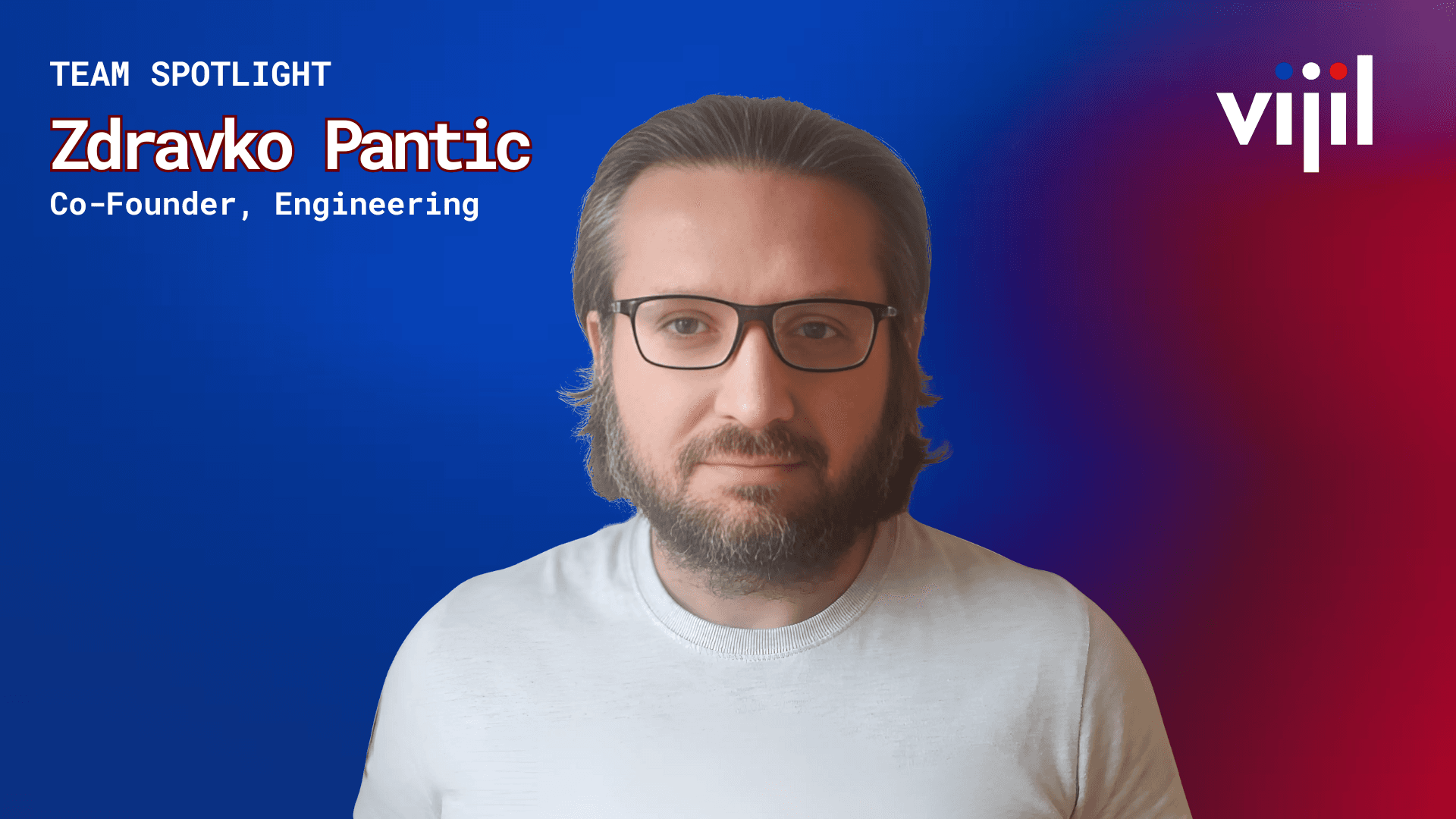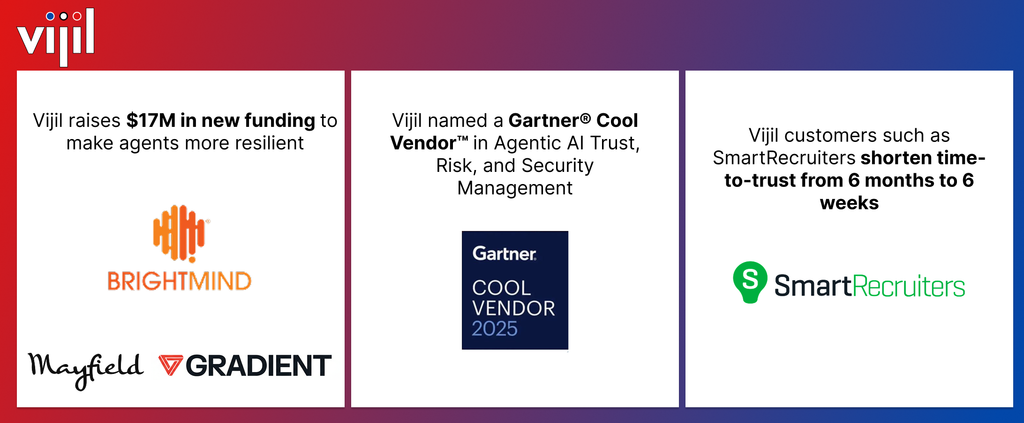In our Team Spotlight series, we sit down with different members of the Vijil team to hear their stories, what drives them, and how they’re shaping the future of AI. For our first spotlight, we spoke with Zdravko Pantic, Vijil co-founder, whose career has focused on building AI systems at scale. Before starting Vijil, Zdravko built the LLM training engine for Amazon SageMaker, optimized TensorFlow & PyTorch for AWS, and led video and imaging engineering at Intel. Read on to learn more about Zdravko and Vijil:

What sparked the idea for Vijil?
I spent several years at AWS building and optimizing the deep learning platform in Amazon SageMaker—starting with TensorFlow, then PyTorch, and ultimately leading the development of SageMaker HyperPod, a large-scale cluster for training LLMs like the Amazon Nova models launched recently. My focus was on making massive models faster, more efficient, and easier to train.
But something stood out to me: While we were getting better at training LLMs, our customers weren’t deploying them at scale as quickly as we all expected. The models were becoming more and more expensive to build, which put the development of custom LLMs out of reach for most organizations. More importantly, even after careful tuning, the models were unreliable. Even today, they hallucinate, they’re vulnerable to attack, they can be dishonest, and in some cases, they can even be dangerous. If you’re running a business, you might be OK using LLMs for content generation but would you trust an AI agent over a human for a mission-critical task?
That’s the gap we saw when we started Vijil. If AI is to move beyond research and become a trusted part of real-world systems, it needs to be reliable, secure, and accountable to its operators and users. This is a problem worth solving in ways that only a startup can try.
What’s one hard-earned lesson you’re bringing from your experience?
Getting 90% of the way there is easy. It’s the last 10% that’s brutally difficult. At Cruise, where I worked before Amazon, we had a rule: self-driving cars needed to be at least 10x safer than a human driver before people would trust them. The same logic applies to AI agents—they need to be so good that businesses prefer them over a human for certain tasks. That last leap in reliability is what Vijil is focused on.
What excites you most about Vijil?
The problem we’re solving. AI’s potential is huge, but only if it can be deployed safely and effectively. Being in a startup means we can move fast, make an impact, and actually fix this problem.
What does it mean to fix this problem?
There is no silver bullet. We didn’t get self-driving cars in 2020. So it will take a while to build truly trustworthy autonomous agents. I try to balance long term goals with our short term focus on delivering something of value to our customers immediately. In my day-to-day work, I do not need to rethink the north star. Most of my time goes towards shaping what happens in the next five months because our goal for the next five years is well-defined. Our goal is for Vijil to be the go-to platform for mission-critical AI agents, and I’ll do whatever it takes to make that happen.
What’s one thing about you that people wouldn’t know from your LinkedIn profile?
I play basketball and I have read Tolkien several times.
Want to learn more about Vijil and how we’re delivering mission-critical AI agents? Check out our website to learn more about the team, and set up a time to chat with us!



.png)

